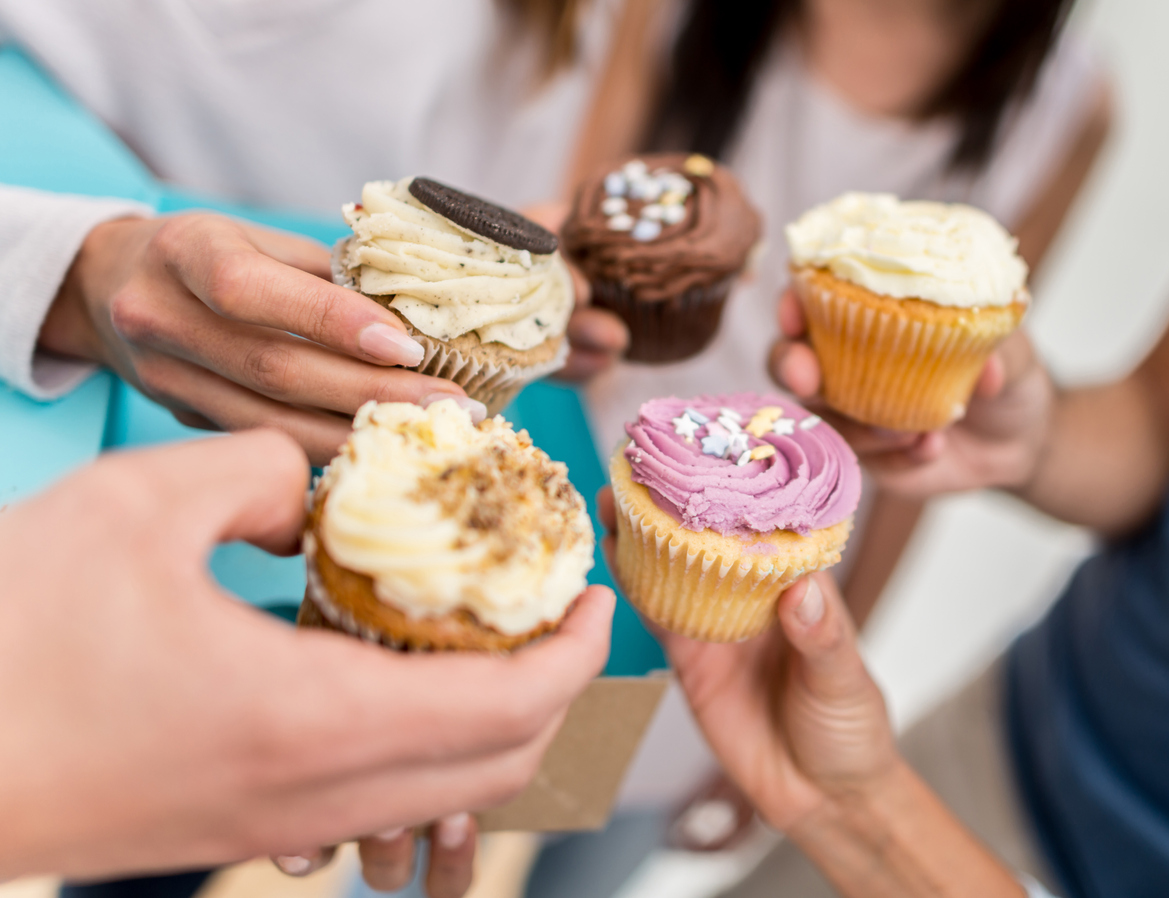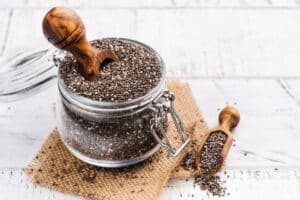If you’re like most people, there was probably a time in your life when you could eat and drink whatever you wanted without giving much thought to any long-term consequences. And if you’re like most people, you reached a point a few years ago when you realized you needed to begin reducing the amount of sugar you eat in order to have better health as you age. You may even find yourself being able to go a week or two before you begin craving sweets, dreaming of cake, cookies, pie, ice cream, or candy and give in “just this once”. So, how do you break those sugar cravings once and for all? First, it helps to understand the role sugar plays in your body.
Carbohydrates and Your Metabolism
Carbohydrates play a vital part in how well your brain and body function. When you eat carbohydrates, your pancreas produces insulin to activate their energy potential. Think of carbs as a lock and insulin as the key. Once the key fits into the lock, your body can use the glucose found in the carbohydrate to power your brain, move your muscles and boost your metabolism. However, not all carbohydrates are created equal.
 Fruits, vegetables and whole grains are complex carbohydrates. In each of these food groups, carbs are paired with both soluble (digestible) fiber and insoluble (non-digestible) fiber. Even though the carbohydrate in these food sources is easy to digest, the fiber takes longer to process. This allows you to experience the energy from the carbohydrate without the crash afterward.
Fruits, vegetables and whole grains are complex carbohydrates. In each of these food groups, carbs are paired with both soluble (digestible) fiber and insoluble (non-digestible) fiber. Even though the carbohydrate in these food sources is easy to digest, the fiber takes longer to process. This allows you to experience the energy from the carbohydrate without the crash afterward.
There are two basic divisions of carbs – simple and complex. Sugar is a simple carbohydrate. When you eat a sugary treat, your pancreas produces large amounts of insulin to counterbalance the glucose in your bloodstream. This often gives you an initial burst of energy and then leaves you feeling hungry, irritable and “low” afterward. It also places a strain on your pancreas as it works to produce enough insulin to maintain your blood sugar levels. People with Type II diabetes are especially susceptible to large changes in their blood glucose levels and their resulting complications as their bodies struggle to produce enough insulin to meet the demand.
If sugar is so bad for you, why are you craving sweets?
If even mentioning the word “sugar” makes you think of the candy bar you keep hidden in your desk, you’re not alone. It has been reported that 97 percent of women and 68 percent of men experience food cravings, primarily for high-sugar, high-fat foods, preferably together. Donut anyone? But if these foods are not the best option for a high-functioning body, why do we want them?
The answer is found in the brain, not the body. As humans, we have a tendency to crave sweet foods because they hold the key to simple, easy-to-digest brain fuel. That is why babies prefer applesauce over green beans or carrots over rice cereal. Simple carbohydrates are ideal ways for our brain to receive the nutrition it needs to function. But that’s not the only reason your brain is craving sweets.
When you eat sugar, your brain releases naturally-occurring neurotransmitters called opiates. These chemicals bond with specific receptors in your brain that are responsible for relieving pain and feeling contentment. Your brain also releases dopamine, which motivates us to search for food and blocks serotonin, which prevents us from overeating.
In other words, craving sugar has little to do with nutrition and everything to do with the way your brain responds to sugar. The more you eat it, the more likely you are to overeat, and the more likely you are to crave it.
How to Stop Eating Sugar
 As tempting as it is to quit eating sugar cold turkey, it is not the most sustainable way to change your lifestyle. Many people who cut the majority of the carbohydrates from their diets often find themselves in sugar withdrawal, a condition commonly known as carb flu. Ketogenic, Paleo, Atkins, or Whole 30 faithful experience discomfort during the first week as their brain craves carbohydrate and they work to deny those cravings. These feelings can include a lack of energy, irritability, headaches, nausea, or even changes in how your body regulates temperature. Usually, sugar withdrawal lasts less than a week in these cases but it is the most common reason people quit this type of diet before they experience any results.
As tempting as it is to quit eating sugar cold turkey, it is not the most sustainable way to change your lifestyle. Many people who cut the majority of the carbohydrates from their diets often find themselves in sugar withdrawal, a condition commonly known as carb flu. Ketogenic, Paleo, Atkins, or Whole 30 faithful experience discomfort during the first week as their brain craves carbohydrate and they work to deny those cravings. These feelings can include a lack of energy, irritability, headaches, nausea, or even changes in how your body regulates temperature. Usually, sugar withdrawal lasts less than a week in these cases but it is the most common reason people quit this type of diet before they experience any results.
A more reasonable approach may be to do the following:
- Eliminate added sugars and artificial sweeteners in your diet – syrup, table sugar, honey, molasses, high fructose corn syrup, stevia, agave, etc. Focusing on eliminating foods that contain obvious sugar is easier and less restrictive than worrying about naturally occurring sugars found in fruit, vegetables and whole grains. Commit to one month of this type of elimination before you reconsider which sugar sources you need to add back.
- Eat breakfast, but remember it shouldn’t taste like dessert. Even supposed “healthy” foods like flavored low-fat yogurt contains large amounts of added sugar. A typical breakfast should include a fruit or vegetable (spinach, bananas, berries, etc.), a protein source (eggs, plain yogurt, a few nuts) and a whole grain (plain oatmeal, whole grain toast, even plain Cheerios).
- Stop drinking your sugar. Fruit juices, sports drinks, smoothies, protein shakes, designer coffee beverages and soda are among the biggest sources of sugar in the typical American diet. In fact, more than 47 percent of Americans drink their daily sugar intake and then some.
- Practice the “good fuel first” approach. If you are really craving a brownie, feed your body high-quality fuel first. You may find that after half an apple and a Tablespoon of all natural peanut butter that brownie doesn’t sound quite so tempting. If you eat the apple and peanut butter and still want the brownie, go ahead and have one, but you will likely find you are satisfied after a few bites.
- Be mindful about your sugar. Studies have shown that your brain pays the most attention to the first bite of food you take. The mechanics of biting, chewing, taste, and swallowing are all evaluated in a complex process you take for granted. However, with each subsequent bite, your brain pays less and less attention to the mechanics required and the flavors you are experiencing. If you decide to indulge in a sugary treat, pay attention to the point where you are no longer experiencing the joy of the first bite and throw the rest away.
Once you understand the role sugar plays in your body, making sound nutritional choices is much easier. Setting yourself up for success with a good breakfast, avoiding sugary beverages and practicing the “good fuel first” approach while eliminating added sugars from your diet can give you a life-long approach to breaking sugar cravings once and for all.







